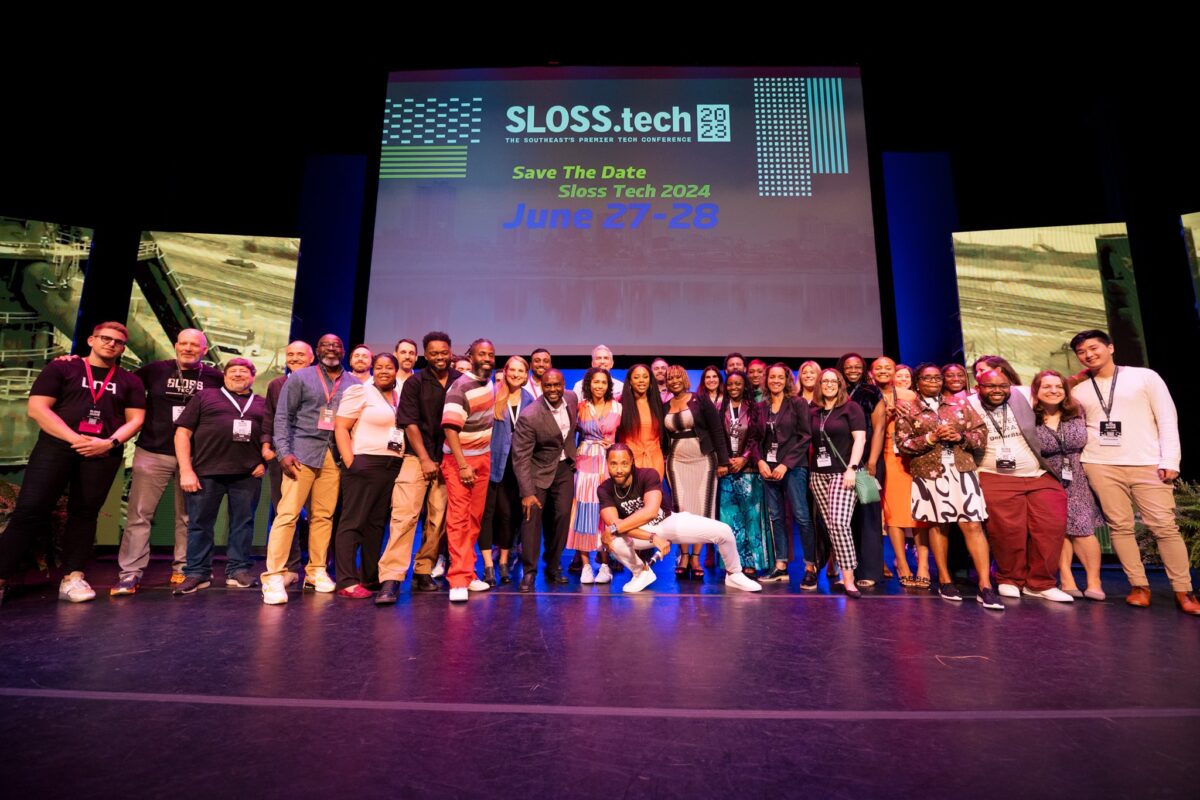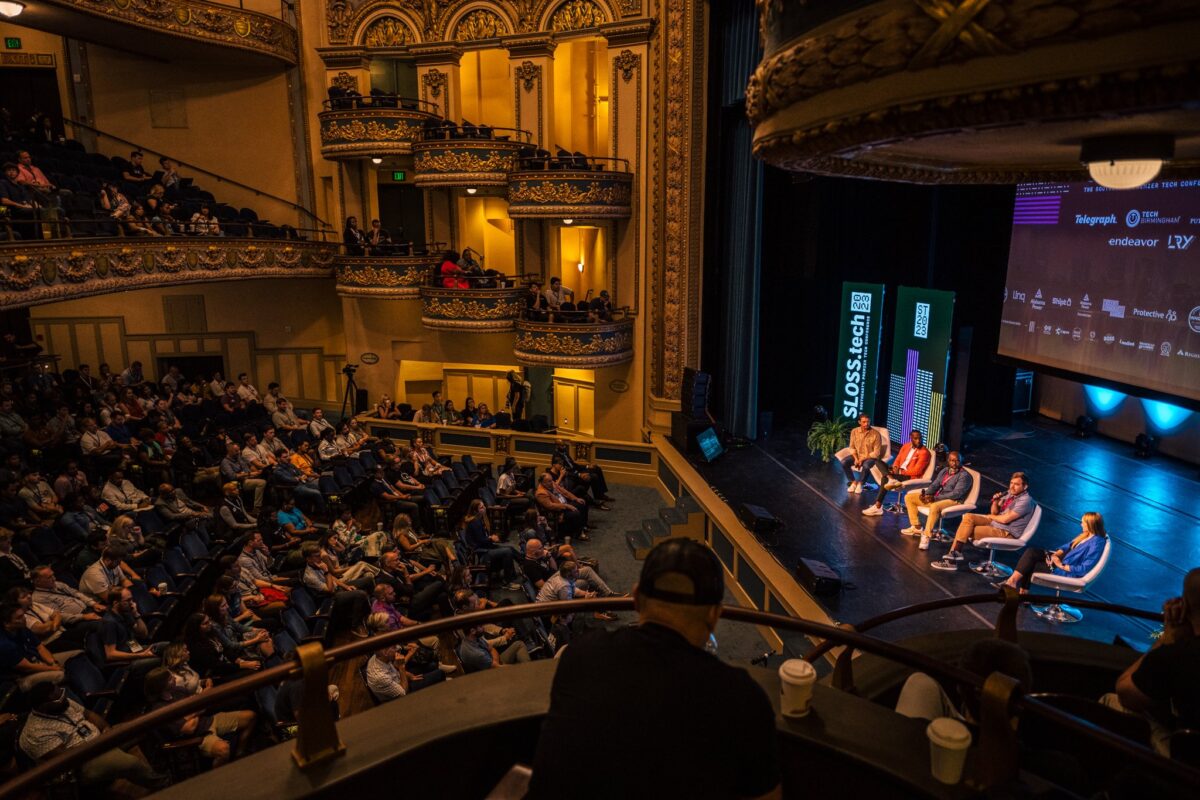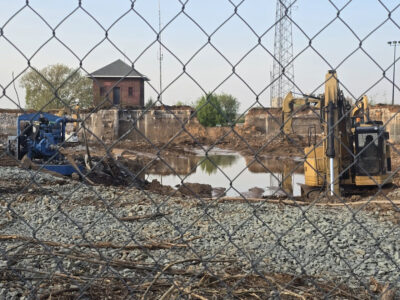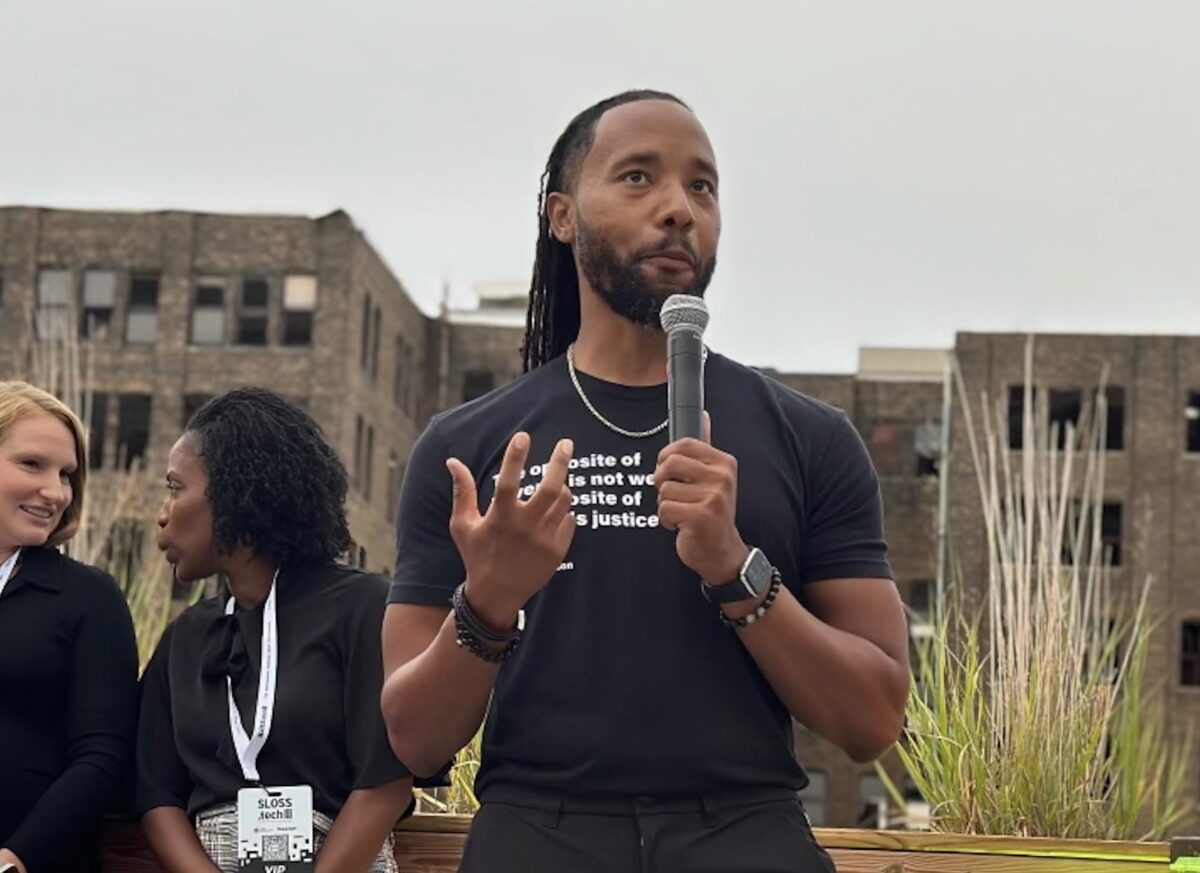Standing in the humid Alabama clouds on a chic rooftop lounge, the CEO of TechBirmingham was flanked last week by a collection of other local economic development grandees. Gordon and co. were celebrating the relaunch of Sloss Tech, a tech-business conference back from a four-year pandemic hiatus.
Its origin will sound familiar: A popular concert series inspired an entrepreneur to spin up a tech conference in the spirit of SXSW, Austin’s ever-emulated music-innovation mashup. The pandemic sidelined the project. Birmingham boosters could have moved on to something else. But the event’s founder, Seth Griffin, who leads a creative agency by day, and Gordon rallied that tribe of local champions in a way mid-sized cities can.
“Birmingham still has something to say,” Gordon said.
The city certainly has a story. It was nicknamed the Magic City when its population boomed after the 1890s, belying old tropes of a backward South. At the Sloss Tech rooftop reception, a Birmingham city rep used a more modern moniker: “the dinner table of the south,” earned by its mix of downhome cooking and a spate of award-winning restaurateurs.
To many, though, Birmingham was shot into the national consciousness because of 1963. Hometown hero Fred Shuttlesworth and Dr. Martin Luther King, Jr. led protests that shocked the delicate sensibilities of northerners — a decisive turning point of the Civil Rights Era.
“People know this city because we fight,” Gordon said. “We should wear that as a badge of honor, not a black eye.”

Sloss Tech organizers, with Birmingham Founders and Funders and the closing panel onstage. (Photo by Josh Weichman)
If Birmingham has culture, it also has problems. The result is its population remains in terminal decline, now below 200,000 — all the more damning as the US Southeast booms. Magic City risks becoming the fourth biggest city in a midsized state with a limited reputation for innovation. Boosters point out the revitalization underway — the rail park, redevelopment, and investments extending from the University of Alabama-Birmingham and startup activity. Sloss Tech itself was a splashy affair, filling a lovingly restored downtown historic theater with 750 attendees from throughout the South and featuring enviable design, noteworthy food and national speakers. Fittingly, the conference gets its name from an historic blast furnace, neatly encapsulating an economic transition.
One local told me Alabama’s size too allows for a statewide identity. Regionalism is thorny, but there’s reason for Birminghamians to partner. Huntsville (a 90-minute drive) has one of the country’s highest densities of tech workers — thanks to the US Army, defense contractors and another of Alabama’s tier-one research universities. The politics of innovation are different in the South, but Alabama has made a go.
Economic activity also doesn’t only happen in metro centers. As entrepreneurship has boomed across the country, it has surprised analysts by further dispersing into rural communities. The ongoing American startup boom has most recently surged in the US South and Southeast, with a particular pop in less dense counties, according to an EIG analysis – though from a low base. In most cases, though, these aren’t high-growth startups. What’s more, despite the breathless coverage of software engineers decamping to log cabins in the woods, the last few years have seen only further consolidation of tech workers into dense metro areas.
As such, any responsible economic development strategy must involve density.

Chris Wink’s Sloss Tech panel at Birmingham’s Lyric Theatre. (Photo by Josh Weichman)
I attended Sloss Tech in large part because I was invited to speak by Gordon, whom I met through a mutual friend years back. His civic vigor has impressed me since. I joined a panel about differences among tech and startup communities. I lamented how undifferentiated many modern urban trappings are — of renovated lofts, cocktail bars and coffeehouses, bicycle trails and breweries. The punchline is not that this path shouldn’t be followed but that it very nearly must be — millennials really do like these amenities, and as the biggest population in the workforce now, they remain important. My fellow panelists knew it: Jamal Lewis joined from booming Atlanta; Kwamena Aidoo came from New Orleans and Nathan Ryan flew from Austin. All those cities have bicycles and breweries to spare, with the enviable economic activity to go with them.
Our panel was moderated by Maria Underwood, the sharp president of Birmingham Bound and another of those rooftop grandees. Though she once lived in a loft over a cocktail bar, she added that costlier bits of infrastructure matter, too, such as affordable housing and good schools. She may be in the business of attracting new residents, but no economic development strategy lasts long without serving those who already live in a place.
As such, much like Delaware economic strategy must include a healthier Wilmington and Iowa needs Des Moines, so too does Alabama need its urban centers. Graduate students need to work at UAB labs, entrepreneurs need resources from TechBirmingham and marketing managers need their lattes from June Coffee.
What is the Birmingham pitch? As a small city, it has an outsized reputation for human rights and manufacturing innovation; it complements Alabama’s rural offerings with urbanity, including the research chops and transportation anchors — a strong regional airport and links by rail and road in a growing part of the country. It has culture, places to live and a stage worth of locals waving you in.
As goes Birmingham so goes Alabama. That’s why a tech conference in its downtown core matters. It’s why they braved the storm. It’s why Gordon stood so proudly, with an unevenly developed downtown behind them.
“Sloss Tech is not back,” Gordon said, “if it’s not for the city of Birmingham.”
Join the conversation!
Find news, events, jobs and people who share your interests on Technical.ly's open community Slack

Delaware daily roundup: Greentech digital glowups; AI versus dev jobs; New Biggs Museum website

DC daily roundup: An athletic tech acquisition; a reflection on summer 2020's equity promises; data center taxes

Delaware daily roundup: Free biz analytics tool; AI tools for HR; Goodwill's recycling plan



